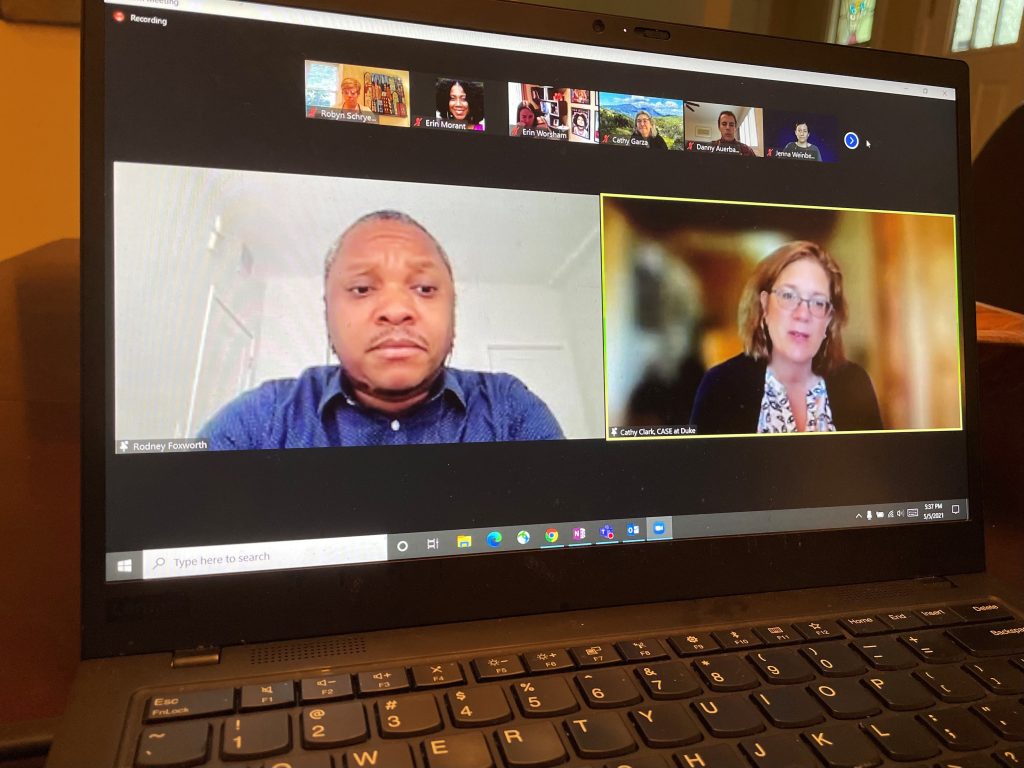
On May 5, Rodney Foxworth, CEO of Common Future closed out the 2020-2021 Center for the Advancement of Social Entrepreneurship (CASE) Executive Speaker Series with a call to action:
“In his famous quote, Dr. King tells us that the arc of the moral universe bends toward justice – but we have to realize that the reason that happens is because we push it!”
Here are three takeaways from Foxworth’s conversation with CASE Faculty Director Cathy Clark:
1. Spend your privilege
Foxworth believes that every person has relative privilege that they can put to use in the work toward equity. Having grown up working poor in West Baltimore, Foxworth said, “the combination of seeing both of my parents working two or three jobs to put food on the table for their kids really shaped so much of my experience.” While material wealth may have been in short supply, Foxworth said that the community engagement and educational advocacy of his parents, particularly his mother, was a foundational privilege that others may not have had. “Throughout my career and my personal life I’ve looked to see what privileges I have that I can put to service…I challenge others to look for the privileges in their own lives,” he said.
2. Engage in character-based lending and move toward reparative finance
Under Foxworth’s leadership, Common Future has “an audacious vision of a new economy that works for all and extracts from none.” To do that, Common Future is shifting capital toward community investment. When making decisions, Foxworth and his team utilize character-based lending in order to increase capital opportunities for enterprises led by people who may have lower assets and credit, particularly those led by Black and Indigenous women.
The Common Future team also collaboratively sets investment terms with the investees they call partners or co-creators “We don’t believe it’s up to us to determine what success looks like for (as an example) a group of indigenous women from Albuquerque, New Mexico; we ask them,” Foxworth said. “Success is based on the primary objectives of the folks we invest in.”
Through working in this way, Common Future engages in reparative finance – recognizing the harm that our economic system that has committed against specific marginalized groups and working to repair that harm. “It’s not just about allocating capital,” Foxworth said. “It’s about reallocating power.”
3. Continuously build intellectual curiosity and empathy
What do impact economy leaders need most? According to Foxworth, it’s rigorous intellectual curiosity and the capacity to continuously build empathy. “Those who will be most successful are those who have ability to adapt, be creative, quickly assess and connect dots,” he said. “You constantly need to be able to learn and flex the empathy muscle in ways that are human-centered and non-extractive.”

